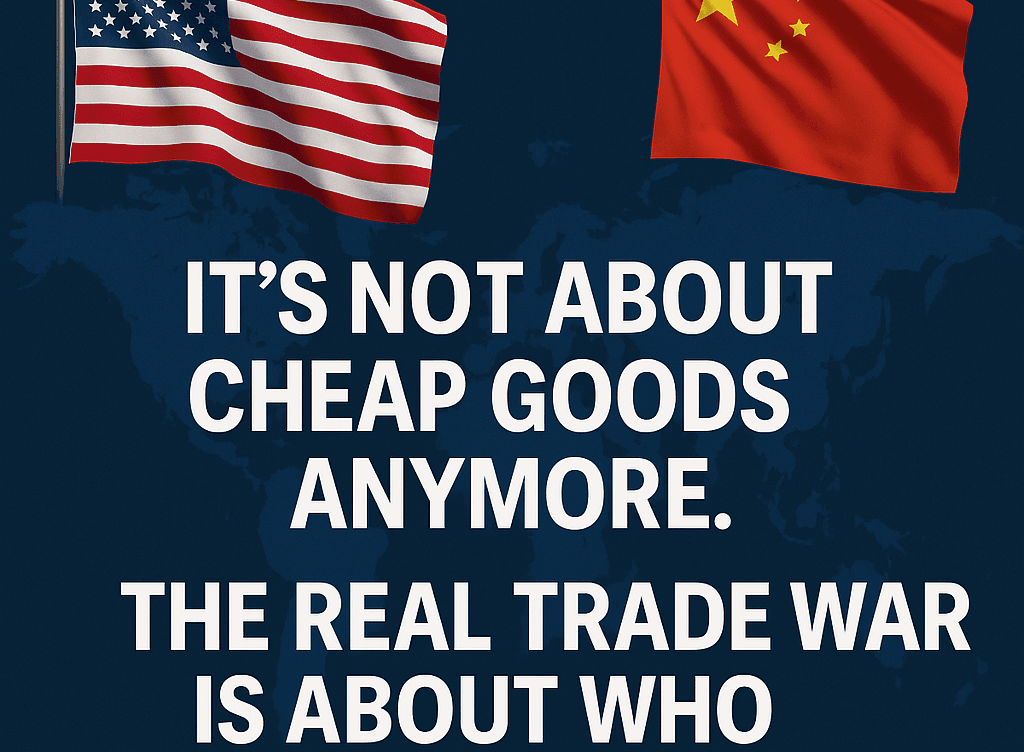
Beyond Cheap Goods: The Real Trade War China Is Winning
In the ongoing U.S.-China trade conflict, the battle over who controls the future has become far more significant than the fight over low-cost goods. Once, the heart of this trade war was about who could sell cheaper goods — toys, clothing, or furniture. But today, the stakes are much higher, as both nations jockey for control of critical industries and future technologies.
China’s Transformation: From Low-Cost Goods to High-End Innovation
China’s goals have shifted. The nation no longer wants to be known as the world’s low-cost factory for cheap toys and furniture. It now seeks to be a leader in cutting-edge industries like semiconductors, electric vehicles (EVs), energy storage, and artificial intelligence (AI). These are the industries of the future, and they hold the key to technological dominance and global economic power.
In a rapidly changing world, the power to influence these industries is the new currency of geopolitical competition. While the U.S. focused on tariffs and trade deficits, China has quietly but strategically expanded its reach in sectors where the real global power lies — the high-tech and green energy sectors.
The Real Fear: China’s High-Tech Challenge
What the U.S. truly fears isn’t China’s cheap exports. Rather, it’s the fact that China is no longer content with low-end manufacturing. Instead, it is aggressively advancing into high-end manufacturing. Companies like BYD (electric vehicles), SMIC (semiconductors), and Huawei (5G technology) are not just competitors; they are setting the stage to challenge U.S. dominance in tech and industrial innovation. This is what truly worries Washington.
The American response has been predictable: increasing tariffs, restricting Chinese tech companies from accessing U.S. technologies, and tightening supply chain control. The fear isn’t just about losing low-end manufacturing to China — it’s about losing leadership in high-tech industries that will shape the future.
U.S. Policies: A Response to China’s Technological Rise
The trade war is now a complex struggle over strategic sectors — and it’s no longer just about trade imbalances. The U.S. has imposed restrictions on Chinese companies in semiconductors, telecommunications, and artificial intelligence in an effort to slow down China’s rise as a tech powerhouse. But these measures are a double-edged sword: they not only limit China’s access to U.S. technology, but they also spur China to innovate and invest heavily in domestic alternatives.
China’s strategy is clear: If it cannot depend on Western technology, it will build its own ecosystem. The country is already home to some of the world’s largest technology companies, and the Chinese government continues to pour resources into research and development. The push to build self-sufficient, world-class industries is underway, particularly in semiconductors, where China has been making rapid advancements to reduce its reliance on U.S. chips.
Global Implications: What’s at Stake
As the U.S. and China continue to clash, the consequences for the global economy are enormous. Global supply chains are being reshaped, with companies looking to diversify away from China due to trade tensions. The U.S.-China trade war isn’t just about tariffs — it’s about securing future industries and shaping the technological landscape of tomorrow.
China’s strategy of focusing on high-end manufacturing and innovation places it in direct competition with the U.S. in key industries. As China works toward technological independence, the U.S. finds itself facing a new challenge: not just to contain China’s rise, but to maintain its own technological and industrial leadership.
Conclusion: The Shift in the Trade War
The real battle is no longer about cheap goods or trade deficits. It’s about who controls the future of high-tech industries that will define global economic power in the 21st century. China’s ambition to challenge the U.S. in semiconductors, electric vehicles, and AI is reshaping the global economic landscape. The U.S. may have started this trade war, but the real question is: Can it stop China from leading the technological revolution of tomorrow?
